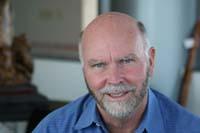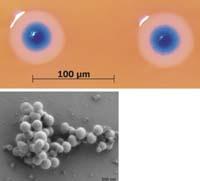Venter is not Doctor Frankenstein
2010/06/05 Galarraga Aiestaran, Ana - Elhuyar Zientzia
However, it must be recognized that he has taken some steps on that path. The latter has been presented by a researcher from his laboratories, Daniel Gibson. Gibson and his team have synthesized in the laboratory the genome of a pre-existing bacterium ( Mycoplasma mycoides) and introduced it into a bacterium of another species (Mycoplasma capricolum). Thus, the synthetic genome has controlled the receptor cell, which takes the form of the bacterium Mycoplasma mycoides, which produces its proteins.

More than one has not found a great advance, because they have not created anything that does not exist. The synthesized genome is a copy of an existing one and has not created the receiving cell either. But getting what they have done is not easy. Tell us: It took 40 million dollars and more than ten years to reach it.
This latest research, published in the prestigious scientific journal Science, has announced that from now on they will continue to work in this line. Venter's goal is to develop a methodology for the design and production of appropriate bacteria for specific purposes, such as bacteria capable of absorbing carbon dioxide from the atmosphere, producing fuels or synthesizing drugs.
But this intention has caused concern to some scientists. The scientific journal Nature has consulted several experts and George Church, a genetic from Harvard University, has warned of two types of risks: bioerror and bioterrorism. That is, you think there is an accidental or intentional risk of harmful bacteria. And it's not the only one. Most experts in Nature consider it necessary to discuss the ethical aspect and establish standards to measure and reduce risks.
However, they also recognize the importance of research, especially as a help to understand what life is, how it arises and how it can be transformed. In addition, the scientists interviewed by Nature have recognized that it makes more real the possibilities that until now seemed of science fiction.
Other opinions and other research
Similar opinions can be read in other magazines and specialized websites. But there are also those who have taken it in the mood. Scientist Richard Dawkins, known for his efforts to spread atheism, writes on his website many other topics. On this occasion, in line with Venter's research and taking advantage of the decoded genome of the Neanderthal, Craig Venter's Brave New World (new world by Craig Venter, referring to the book "Bai mundu berria" by Aldous Huxley) spoke about the possibility of lighting the Neanderthal.
In any case, sometimes reality is closer to what is believed. Last week the first person infected with a computer virus was reported. It occurs at the University of Reading (Great Britain): Researcher Mark Gassib implanted in his hand, under the skin, a chip in an implant research experiment to improve health. As a virus has infected the chip and blocks the communication system with the central computer. The event has highlighted the risks that these implants may present.
Published in Gara

Gai honi buruzko eduki gehiago
Elhuyarrek garatutako teknologia





